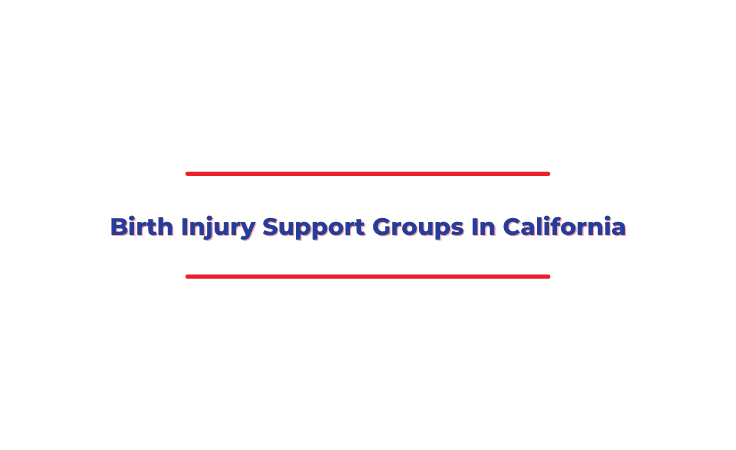Birth injuries can be life changing for both child and parent. The trauma of a birth injury and the recovery journey can be difficult to endure alone. Luckily, parents don’t have to figure out life with a birth injured child without help. Birth injury support groups exist for the families of minor patients. These groups can help the parents of children who suffer from birth injuries such as Erb’s Palsy, brachial plexus injuries, brain injuries, autism, cerebral palsy, and other disorders. They can also help mothers who are coping with anxiety from a traumatic birth or post-partum depression. Here is an introduction to some birth injury support groups that are available in California.
BirthTalk.org
This UK-based online support group includes a variety of traumatic birth experiences, with heartfelt stories families share. This group regularly posts helpful information and resources for coping with a traumatic birth and injuries, such as books, articles, and blog posts. Find information about how to prepare for birth, how to heal after a traumatic birth, and how to birth again after a harrowing first birth.
United Brachial Plexus Network, Inc.
This national organization has a wealth of information and support options for parents with children who have suffered brachial plexus injuries. These are injuries to the brachial plexus, or the network of nerves in the arm and shoulder. Brachial plexus injuries commonly occur when the baby becomes stuck in the birth canal, lodged behind the mother’s pelvic bone. Improper use of birthing tools and techniques can cause this type of injury, especially when the physician reacts poorly to an emergency situation.
The United Brachial Plexus Network (UBPN) offers resources for parents as well as for people living with brachial plexus injuries. It offers scholarships for individuals with this type of injury, as well as an annual camp for children, adults, and parents. Find everything you need from a brachial plexus injury support group with the UBPN, from learning tips on how to prevent this kind of injury, support for families, education about this disability, and a worldwide network of people dealing with this injury.
Brain Injury Association of California
This support group is helpful for all parents of children with brain injuries, and not just brain injuries relating to traumatic birth. The Brain Injury Association of California is a nonprofit organization that provides information and support for families and individuals affected by brain injures. This group publishes recent news relating to brain injuries, as well as information about local events and fundraisers. It helps people get involved with the cause, such as attending educational events or participating in forums. It is also a great source of support for those living with brain injuries. The group provides personal stories, FAQs, recent research, and staff available for conversation.
United Cerebral Palsy
United Cerebral Palsy (UCP) has an extensive network around the country. It provides services and support based within individual communities, serving the unique needs of people with cerebral palsy (CP). Parents and individuals can find information, resources, and support for life with cerebral palsy. UCP aims to help those with CP live life to the fullest, providing a way to stay connected and join the conversation. The UCP also accepts donations for helping those living with CP.
Attention Deficit Disorder Association
Attention deficit disorder (ADD) and other behavioral disorders, can stem from a traumatic birth injury, especially those involving the brain. Lack of oxygen to the brain (brain hypoxia) during birth can lead to permanent brain damage and behavioral changes in children. The Attention Deficit Disorder Association (ADDA) gives you excellent resources you can trust and a network of individuals going through the same experiences with whom you can connect. As an individual with ADD or a parent of a child with ADD, this organization can help you learn how to live with this disorder and join a community of others who can support you and your family.
